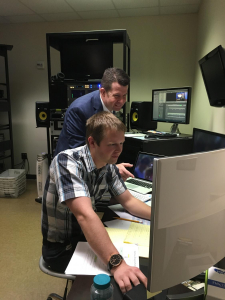Second Thoughts: The Immensity of Small Things
By Thomas White, Student at Living Ed – Charlotte
“We all understand that God is preparing us for big things, for being kings and priests…things we are doing today that may seem mundane may make all the difference in the future, in our future, in our destiny.” ~ Mr. Rod McNair
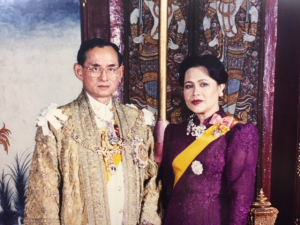
King Bhumibol and Queen Sirikit of Thailand – Photo courtesy of Dr. Germano, Living University
You know that nightmare where you randomly have to give a speech, and you didn’t prepare for it, and now everyone’s watching? Imagine that feeling multiplied by millions and you may have an idea of how Bhumibol Adulyadej felt when he was suddenly the King of Thailand at age 22. Mr. Rod McNair’s Assembly this week was largely based upon this singularly remarkable man, who had been so far down the line of succession for Thailand’s throne that he hadn’t been trained in any “kingly” subjects whatsoever. What he did have, however, was an education in science, ecology, and conservation, and as the years went by, his knowledge turned out to be just what his people needed. King Bhumibol influenced the development of dams, reservoirs, water irrigation systems, and beyond. Since the top problem for 80% of Thailand’s people had been an inadequate water supply, he became an immensely popular ruler, all because of what he learned in his youth.
“…maybe a hundred, or two hundred, or five hundred years from now, as you are in God’s government and His Kingdom, administering and serving…you may think back to 2018, or 2019, and the lesson you learned back then that you’re using at that precise moment.”
 Thankfully, God’s word tells us in advance of our ultimate destiny, so kingship hopefully won’t surprise us the way it surprised King Bhumibol. Even so, we probably will be surprised by how what we’re learning now, no matter how inconsequential it may seem, will end up being used by God to immense effect. Mr. McNair used the example of Joseph, who probably never thought for a second that his time as a slave and a prisoner would teach him skills he would later use to govern the nation of Egypt. But (spoilers!) that’s exactly what happened (Genesis 45:3-8). Mr. McNair advised us to look beyond what we see, to consider how what we’re learning right now might be used to unexpectedly shape our lives and the lives of others. As Mr. McNair said, “It’s always easy to think that the big, valuable stuff will be somewhere else, will be at another time, will be in another place…and to miss the goldmine in front of you.”
Thankfully, God’s word tells us in advance of our ultimate destiny, so kingship hopefully won’t surprise us the way it surprised King Bhumibol. Even so, we probably will be surprised by how what we’re learning now, no matter how inconsequential it may seem, will end up being used by God to immense effect. Mr. McNair used the example of Joseph, who probably never thought for a second that his time as a slave and a prisoner would teach him skills he would later use to govern the nation of Egypt. But (spoilers!) that’s exactly what happened (Genesis 45:3-8). Mr. McNair advised us to look beyond what we see, to consider how what we’re learning right now might be used to unexpectedly shape our lives and the lives of others. As Mr. McNair said, “It’s always easy to think that the big, valuable stuff will be somewhere else, will be at another time, will be in another place…and to miss the goldmine in front of you.”
“We all have different abilities, we all have different talents, all with the potential to be used directly by God for a specific purpose in His government.”
As Mr. McNair pointed out, if God is planning on using what you and I are currently learning for the benefit of tomorrow’s world, we need to take advantage of what is right in front of us, and learn to interact with a variety of personalities. A king’s major responsibility is to care for the people he reigns over, so it’s crucial that we expand our personalities enough to genuinely understand people who are vastly different from us. It’s easy to coast along if we seem to be doing well enough, but does God want kings and priests who think, “Eh, this city seems fine,” or does He want those who go all out? If we foster a habit of learning, keep God at the center of our lives, and appreciate “the day of small things” (Zechariah 4:10), we can look forward to being shown just how immense those small things really are.




 By Thomas White, Student at Living Education-Charlotte
By Thomas White, Student at Living Education-Charlotte




 “Employers don’t pay you what you need; they pay you what you’re worth. … If you want $20 an hour, you probably have to make about $50 an hour for your employer.”
“Employers don’t pay you what you need; they pay you what you’re worth. … If you want $20 an hour, you probably have to make about $50 an hour for your employer.”
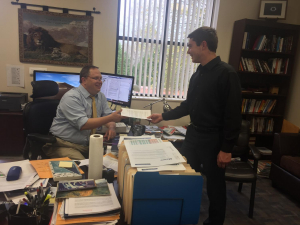
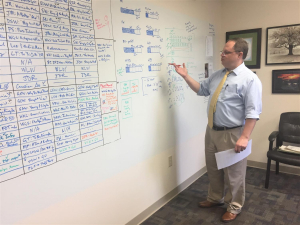

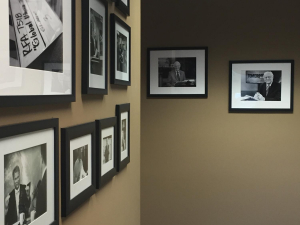 The work of God today may functionally look much different than it did during the time of Christ and the apostles, yet fundamentally the commission is the same, principally to preach the gospel of the Kingdom and the true name of Jesus Christ. In Jesus’ day, the message had to be delivered by foot, letters, and word of mouth. Instead of airplanes for travel, satellite communication, and high-speed internet, they had wooden ships, strong speaking voices, and parchment. Mr. Ciesielka began his assembly by emphasizing that since the commencement of the work during the time of Christ, God’s commission and the responsibility of the church continues on. As I reflect on it, it is easy to see that even with the passing of time and the changes in technology, the focus of the church remains consistent. If one considers Christ’s sermons, speeches, and parables to have been the “front line” of preaching the gospel in His day, then the Tomorrow’s World telecast would be on the “front line” of preaching the gospel in our day.
The work of God today may functionally look much different than it did during the time of Christ and the apostles, yet fundamentally the commission is the same, principally to preach the gospel of the Kingdom and the true name of Jesus Christ. In Jesus’ day, the message had to be delivered by foot, letters, and word of mouth. Instead of airplanes for travel, satellite communication, and high-speed internet, they had wooden ships, strong speaking voices, and parchment. Mr. Ciesielka began his assembly by emphasizing that since the commencement of the work during the time of Christ, God’s commission and the responsibility of the church continues on. As I reflect on it, it is easy to see that even with the passing of time and the changes in technology, the focus of the church remains consistent. If one considers Christ’s sermons, speeches, and parables to have been the “front line” of preaching the gospel in His day, then the Tomorrow’s World telecast would be on the “front line” of preaching the gospel in our day.